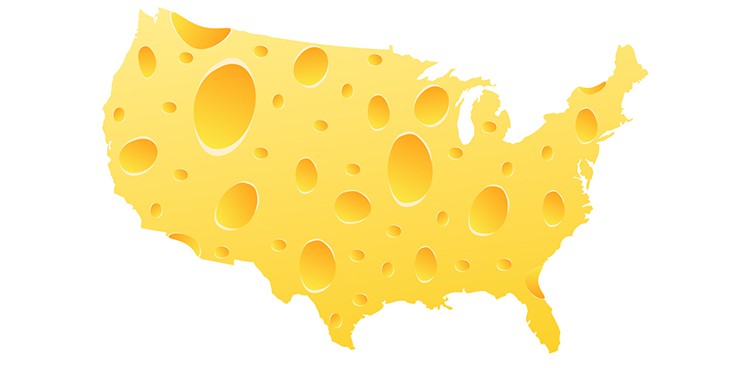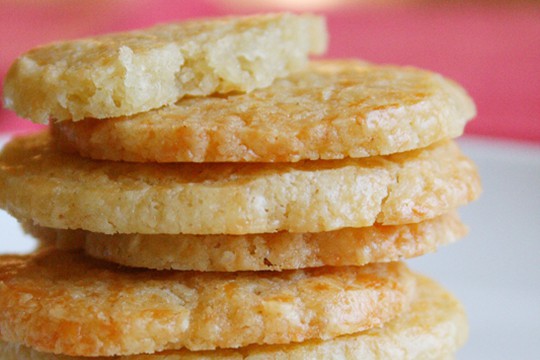
When I walked into the office today, I was fully expecting the halls to be coated in confetti with platter after platter of different cheeses scattered across every available surface. I thought there would be a cheese-shaped piñata that we would hit with a bat made of cheese until tiny morsels of cheese rained down onto our little cheese-obsessed heads. I mean today is National Cheese Day, and I fully expected culture magazine—the word on cheese!—to go bananas over it. Much to my surprise, my entrance into work today was no different than what it has been so far. When I asked whether or not we were writing a piece in honor of today—the holiest of holidays—most people didn’t even know that this was National Cheese Day! I was shocked. How can we call ourselves a cheese magazine if we don’t celebrate the one day of the year dedicated to cheese?
After I had a few moments to calm down (and seriously question my mental stability for expecting a cheese piñata), I had a realization: Who the hell decided that today was National Cheese Day? Not only does the date hold no significance in cheese history [ED: It also happens to be National Eggs Benedict Day], but why should there only be one day dedicated to celebrating cheese? This might sound cheesy (pun intended), but at culture every day is National Cheese Day, so why can’t that be the status quo around the world?
To get to the bottom of this, I did some digging concerning the history of food holidays. While most of these food holidays are completely unofficial and created by large retailers to sell more product (I’m looking at you Dunkin’ Donuts), there are a few that have been declared and authorized by the POTUS as official days or of recognition. In 1984, President Ronald Reagan declared July 15 to be National Ice Cream Day in honor of the nutritious, wholesome summer treat that generated approximately $3.5 billion in annual sales and provided jobs to thousands of citizens. However, national food holidays do not always need a presidential stamp of approval in order to be created. Petitions for special observance days can also be approved by mayors, governors, and state legislators.
While this is all very good and dandy, the question still remains of whether or not these days genuinely matter. To have a specific day of the year dedicated to chocolate macaroons, root beer floats, and carrot tops just seems frivolous (ok that last one isn’t real, but it might as well be). Are these formalizations necessary, or is the ever-increasing number of them undermining their individual significance? What then becomes the point of having so many? If it’s to flood my Facebook newsfeed with articles like “56 Fruit Roll-up Recipes to Celebrate National Gummy Sugar Rope Day!” then I think things need to be rethought.
To avoid sounding like a scrooge, let me say this: I love these holidays. I think they’re a great way to bring attention to just how many dishes and ingredients there are in the world, which is partly what makes food so exciting. Just this past April, the creation of Raw Milk Cheese Appreciation Day by the Cheese of Choice Coalition was a huge success in fostering dialogue and spreading the word about cheeses made with unpasteurized milk. Similarly, up until this week I had no idea what a Spumoni was until I did a little research and came across National Spumoni Day (August 21, everybody). Sure it’s a little ridiculous that it even exists as a holiday, but a minor annoyance is nothing to get up in arms about.
So if you eat a larger than normal amount of cheese today, fantastic. If not, don’t worry about it! Today is as special as you make it. I will be celebrating by drawing up blueprints for a cheese piñata. It’s going to work guys, I promise.
Photo Credit: “american map made of cheese” by Andrei Marincas | Shutterstock





